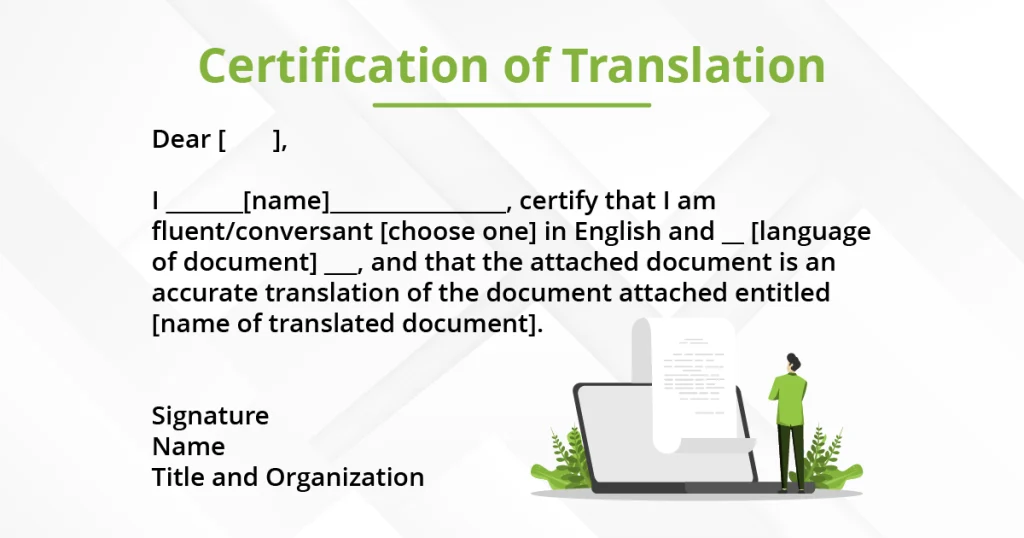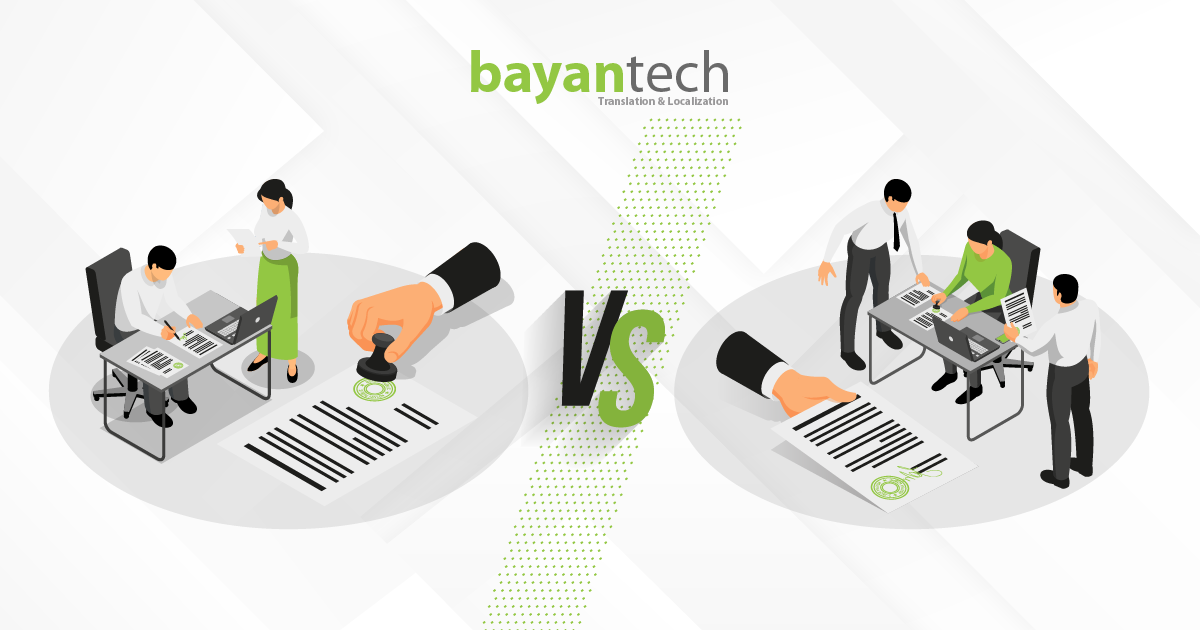Handling official documents requires careful attention. To ensure a smooth process, you need to understand all the requirements before submission. And when it comes to translated documents, the difference between certified and notarized documents can be confusing, so let’s break them down.
What Is a Certified Document?
A certified translation is a translated document accompanied by a signed statement from the translator or language service provider (LSP), confirming that the translation is complete and accurate. This type of certification is often required for legal documents and submissions to official entities.
The specific requirements for certification can vary by country. For example, in the U.S., any qualified translator can provide a certified translation—there’s no need to be accredited by the American Translators Association or any other official body.
That said, having academic credentials or professional certifications can strengthen a translator’s credibility. It’s also important to consider who will receive the document, as different institutions may have different format requirements for certified translations.
Below is an example of a translation certification format.

What Is a Notarized Document?
Document notarization is one step further in making a translated document official. It involves a notary public who verifies the translator’s identity and witnesses their signature on a certification statement.
The notary does not assess the quality of the translation itself, but their role is to confirm that the document was signed willingly and by the correct person. Notarized documents help prevent fraud and ensure the document’s legal validity in more formal or legal settings.
Certified vs Notarized Documents: Key Differences
The key difference between certified and notarized documents lies in the role of the translator and the notary. While certified translations guarantee accuracy, notarized documents provide formal verification of identity and authenticity.
. Purpose
Certification confirms that the translation is complete, accurate, and faithful to the original document.
Notarization is a formal validation performed by a notary public, verifying the identity and signature of the translator, not the translation itself.
. Requirements
For certification, the original document must be provided to a qualified translator or language service provider. The translator includes a signed statement of accuracy, their qualifications, and may adjust the format based on the requirements of the receiving entity.
For notarization, the signer must appear before a notary public, provide valid identification, and sign the certification in the notary’s presence. In some cases, all parties providing signatures must attend to confirm their identity. The notary then adds an official seal.
.Regional Differences
Regional differences in certification and notarization requirements mean that what’s needed for legal documents in one country or state may not be the same in another. It’s always important to verify local regulations before submitting documents.
Business Documents That Need Certification
As a professional language service provider, we often get certification requests for these types of documents:
1. Real Estate Agreements
In the real estate sector, signing leases and ownership documents is routine. Translations of such legal papers often need to be certified to ensure their validity.
2. Vendor and Supplier Agreements
Binding agreements used in supply chain management are official documents that often require certification to confirm their accuracy.
3. Contracts
Of course, legal documents like contracts, patents, and service agreements require certified translation. Accuracy is crucial here, not just for clarity, but to ensure the translation holds up in legal or official contexts.
4. Business Documents
Documents related to business ownership, acquisitions, and investments frequently need certification, especially when used in cross-border or international business contexts.
bayantech’s ISO-Certified Services: Reliable Translation Certifications
As a leading LSP with over 20 years of experience, bayantech provides certified translations for all types of documents. With ISO 17100:2015 and ISO 9001:2015 certifications, we adhere to the highest industry standards for quality and accuracy.
Our team of qualified, native-speaking translators ensures every translation is precise, consistent, and fit for official use. Get a free quote for your project today and request a certification with ease. Simply share the original document and let us know who the receiving party is, and we’ll provide a signed certification of translation accuracy.







